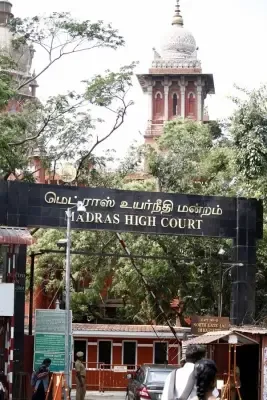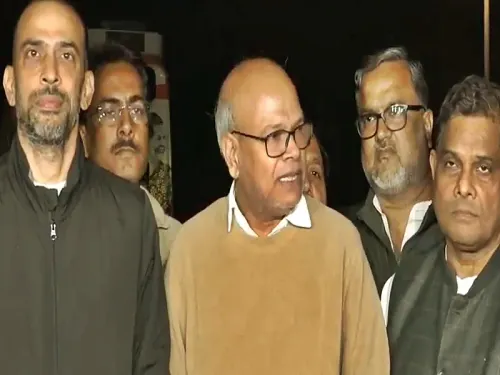Why Did the Madras HC Quash the Detention of 17 in the Armstrong Murder Case?

Synopsis
Key Takeaways
- The Madras High Court has quashed the detention of 17 individuals.
- The court found procedural violations in the application of the Goondas Act.
- The murder of K. Armstrong triggered significant public outcry.
- Legal proceedings are set to continue despite the court's ruling.
- The case emphasizes the importance of due process in the legal system.
Chennai, Aug 6 (NationPress) The Madras High Court has officially quashed the detention of 17 individuals linked to the murder of Tamil Nadu Bahujan Samaj Party (BSP) president K. Armstrong, who was brutally hacked to death in July 2024, in Chennai.
A division bench composed of Justice M.S. Ramesh and Justice V. Lakshminarayanan delivered this significant verdict while reviewing a series of petitions from the relatives of the accused, who contested their detention under the Goondas Act.
The court determined that the detentions did not adhere to the procedural standards set forth by the Act, noting that these orders were issued in a mechanical fashion. However, the judges clarified that this annulment of the preventive detention orders would not influence the bail applications of the accused, which must be evaluated based on their individual circumstances by the relevant court.
The petitioners contended that the detention orders from the Greater Chennai Police Commissioner were arbitrary and showed a lack of proper consideration. They further argued that the authorities did not provide timely and adequate notice to the detainees and their families regarding the detentions, thereby breaching statutory requirements.
This case revolves around the horrifying murder of 47-year-old K. Armstrong, the former state president of the BSP, who was savagely attacked on July 5, 2024. The incident took place around 7 p.m. near his home in Sembiam, a highly populated area close to Perambur in North Chennai.
As per the prosecution's account, a gang of six individuals arrived on three motorcycles and assaulted Armstrong while he conversed with friends and supporters. The attackers, armed with lethal weapons, struck with swift and brutal intensity.
Even in a public setting, the abruptness of the onslaught left little opportunity for intervention by those nearby.
Armstrong was left lying in a pool of blood as the assailants escaped the scene. He succumbed to his injuries shortly thereafter.
This murder sent shockwaves throughout the state, inciting strong condemnation from various political factions and public outrage.
With the court now overturning the Goondas Act detention orders, the legal proceedings in this sensational case are expected to persist as the trial moves forward.









